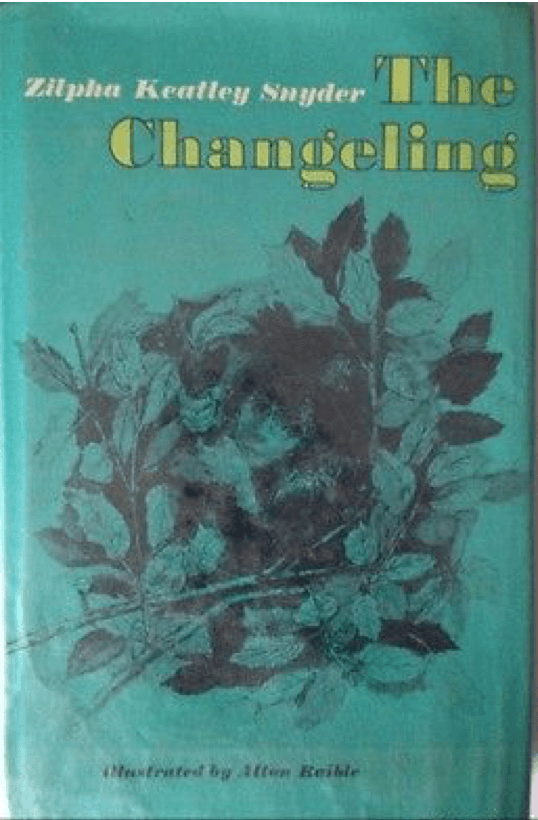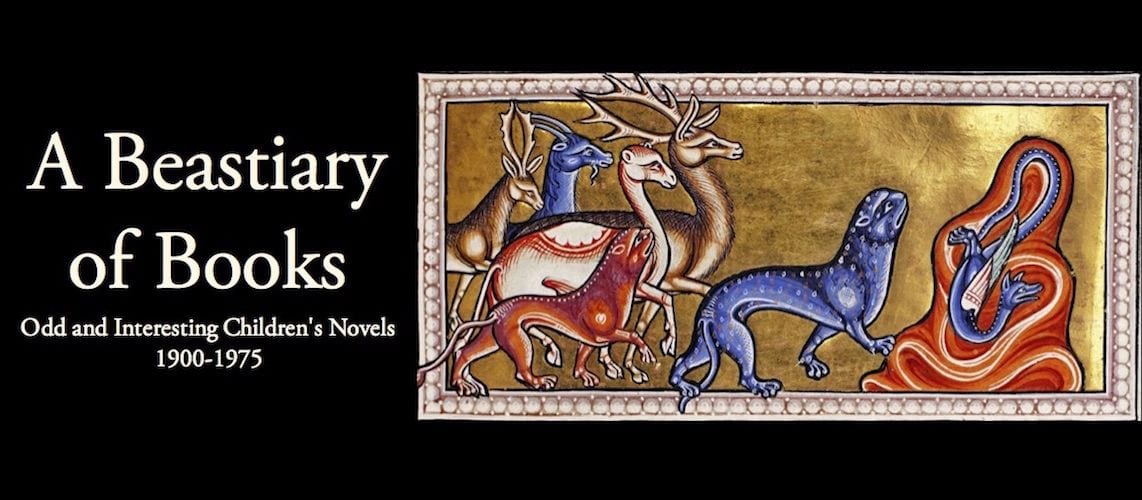 Like Snyder’s The Egypt Game, The Changeling concerns two girls who form a friendship around a system of imaginings. Martha is from a socially prominent, emotionally unexpressive family; Ivy is from a large, poor, dysfuntional family prone to petty crime. Neither girl fits in her own world, so they spend their time in a shared world of magical beliefs and pretend. Their beliefs — that they can stop themselves from growing up, that they can perform magic, that Ivy is a changeling — allow them to escape the unsatisfying “real” world offered to them by their elders. Their deeply-felt games range from trying to steal an old horse to save its life, to inventing the tragic history of burned-out mansion; but their longest-running game is about the People from the Land of Green Sky, played in the trees of an oak grove.
Like Snyder’s The Egypt Game, The Changeling concerns two girls who form a friendship around a system of imaginings. Martha is from a socially prominent, emotionally unexpressive family; Ivy is from a large, poor, dysfuntional family prone to petty crime. Neither girl fits in her own world, so they spend their time in a shared world of magical beliefs and pretend. Their beliefs — that they can stop themselves from growing up, that they can perform magic, that Ivy is a changeling — allow them to escape the unsatisfying “real” world offered to them by their elders. Their deeply-felt games range from trying to steal an old horse to save its life, to inventing the tragic history of burned-out mansion; but their longest-running game is about the People from the Land of Green Sky, played in the trees of an oak grove.
Interestingly, as they grow older they lose their ability to really play the game. This was such an authentic insight on Snyder’s part that I hated it, because I didn’t want it to be true. Allie Brosh, author of Hyperbole and a Half, describes growing out of imaginative play like this:
As I grew older, it became harder and harder to access that expansive imaginary space that made my toys fun. I remember looking at them and feeling sort of frustrated and confused that things weren’t the same. I played out all the same story lines that had been fun before, but the meaning had disappeared. Horse’s Big Space Adventure transformed into holding a plastic horse in the air, hoping it would somehow be enjoyable for me. Prehistoric Crazy-Bus Death Ride was just smashing a toy bus full of dinosaurs into the wall while feeling sort of bored and unfulfilled. I could no longer connect to my toys in a way that allowed me to participate in the experience.
Martha and Ivy solve the problem by turning the stories into plays they act out. In the process, Martha (the quiet, timid one) finds an unexpected talent for dramatic acting, and Ivy discovers a passion for dance.
Over the course of their friendship, however, real life increasingly intrudes, often in the form of the class differences between their families. Eventually Ivy’s dancing talent draws the ire of the school’s queen bee, who falsely accuses Ivy and Martha of vandalism. Ivy’s family assume she’s guilty and leave town before the truth comes out. But Ivy escapes the gravitational pull of her family by going to New York to train as a dancer, and Martha, by falling in with the theater crowd at school, finds her own way to be in the real world without being a carbon copy of her family.
This book speaks loudly of the cultural shifts of the 1960’s, when “respectable” vs. “not respectable” were losing their power to define a good life; but it’s a process that every generation goes through. As Randall Munroe of the webcomic xkcd puts it, “We’re grownups now, and it’s our turn to decide what that means.”

I read this one in junior high, and I remember having very mixed feelings about it. It is so well written it kept my attention, but I was a simple fantasy fan and the book’s loyalty to reality was confusing. I kept waiting for a real alternative reality to open up and save the girls from their dismal day to day existence.
😆 Yes, I could see that! I usually preferred books with magic too, but I also found a few books that spoke to me as an Odd Child, and clung to them with a fanatical loyalty. This was one.